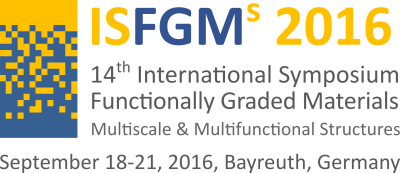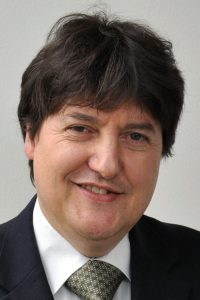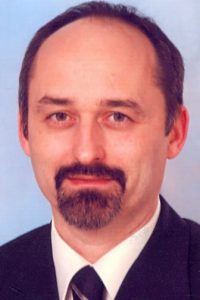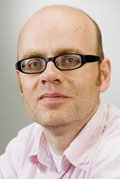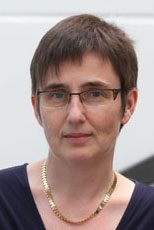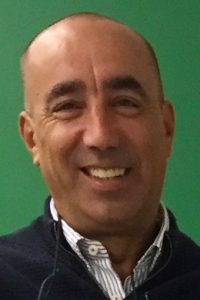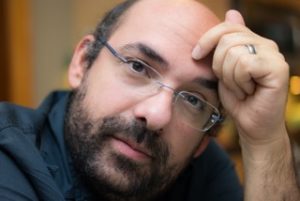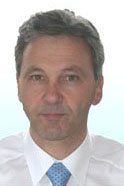Prof. Dr.-Ing. habil. Aldo R. Boccaccini
Institute of Biomaterials, Department of Materials Science and Engineering
University of Erlangen-Nuremberg, Germany
Aldo R. Boccaccini is Professor of Biomaterials and Head of the Institute of Biomaterials at the University of Erlangen-Nuremberg, Germany. He is also visiting Professor at Imperial College London, UK. He holds an engineering degree from Instituto Balseiro (Argentina), Dr-Ing. from RWTH Aachen University (Germany) and Habilitation from TU Ilmenau (Germany). The research activities of Prof. Boccaccini are in the field of glasses, ceramics and composites for biomedical, functional and/or structural applications. He is the author or co-author of more than 600 scientific papers and 15 book chapters. His work has been cited more than 15,000 times and he was named in the 2014 Thomson Reuters Highly Cited Researcher list. Boccaccini has been a visiting professor at different universities around the world, including Japan, Italy, Spain, Slovenia, Netherlands, Singapore, Argentina and Poland. His achievements have been recognized with several awards including, most recently, the Materials Prize of the German Materials Society (DGM) in 2015 and the Turner Award of the International Commission on Glass (2016). In 2015, he was elected member of the World Academy of Ceramics. Boccaccini is the editor-in-chief of the journal Materials Letters and serves in the editorial board of more than 10 international journals. In 2015 he was elected member of the Council of the European Society for Biomaterials (ESB). He also serves in the Review Panel of the German Science Foundation (DFG) and is an international advisor to the Ministry of Science and Technology of Argentina.
Prof. Dr. rer. nat. Uwe Gbureck
Department for Functional Materials in Medicine and Dentistry, University Hospital Würzburg, Germany
Uwe Gbureck is a professor in the Department or Functional Materials in Medicine and Dentistry, University of Würzburg. He earned a PhD degree in chemistry from the University of Würzburg in 1999 about the synthesis of organically modified titaniumoxide coatings as coupling agents for hydrolysis resistant metal-polymer joints in dental applications. Afterwards, he investigated the use of injectable mineral biocements as bone replacement materials for low load bearing defect sites within his “Habilitation” thesis in 2005 and was later on appointed as “Priv.-Doz.” (2005) and “Apl.-Prof.” for Experimental Dentistry at the University Hospital Würzburg. His main research interests include the chemistry and material properties of mineral biocements based on calcium and magnesium phosphate chemistry, the use of such cement in rapid prototyping applications, as well as drug delivery systems based on inorganic structured materials.
Prof. Dr. Martin van Hecke
Huygens-Kamerlingh Onnes Lab, Universiteit Leiden, PObox 9504, 2300 RA Leiden, The Netherlands
FOM Institute AMOLF, Science Park 104, 1098 XG Amsterdam, The Netherlands
Martin van Hecke got his PhD in theoretical physics in 1996 at the University of Leiden. Since then he has worked on a broad range of topic in soft matter, including pattern formation and chaos, granular media, foams, rheology and jamming, combining experiments, simulations and theory. The common thread in all this works is the fascination for the emergence of complex behavior in seemingly simple systems. In 2008 Martin van Hecke was appointed as professor in the ‘organization of disordered media’ in Leiden, and after been awarded the Vici grant in 2011, he has refocused his research towards mechanical metamaterials, from patterned elastic media to origami. His main current fascination is the inverse problem: to design and make simple materials for which desired complex behavior emerges. Since Sept 2014 he works part-time at AMOLF, running a single group at two locations and spearheading the ‘Designer Matter‘ initiative.
Prof. Dr.-Ing. habil. Carolin Körner
Lehrstuhl Werkstoffkunde und Technologie der Metalle, Universität Erlangen-Nürnberg, Germany
Carolin Körner has studied theoretical physics and graduated in the field of theoretical nuclear physics at the University of Erlangen-Nuremberg. Afterwards she changed to the Department of Materials Science and gained her PhD in the field of modelling of laser material interaction phenomena. She habilitated in the field of light-weight materials with focus on metal foams. Since 2011 she is full professor for Materials Science and head of the Chair Materials Science and Technology for Metals at the University of Erlangen-Nuremberg. In addition, she is head of the additive manufacturing groups at the Joint Institute of Advanced Materials and Processes in Fürth and at New Materials Fürth GmbH. Her research areas are additive manufacturing of high performance materials, casting technologies, metal matrix composites and process simulation.
Prof. Luís Augusto Rocha
UNESP – Universidade Estadual Paulista, Bauru, Brazil
Luís Augusto Rocha is Associated Professor at UNESP – Univ. Estadual Paulista, Faculdade de Ciências de Bauru. Formerly he was Associated Professor at the Department of Mechanical Engineering of University of Minho, in Portugal. He is the coordinator of the IBTN/Br, Brazilian branch of the Institute of Biomaterials, Tribocorrosion and Nanomedicine and member of the MEMS-UMinho – Center MicroElectroMechanical Systems at University of Minho.
His research interests are focused on biomaterials, namely on the development of functionally graded materials (FGM), surface functionalization of metallic biomaterials and on the investigation of the degradation mechanisms of those materials, essentially from the tribocorrosion point-of-view, and its influence on biological systems.
He is a member of WP18 on Tribocorrosion (European Federation of Corrosion), LGM-AS – Int. Assoc. for Layered and Graded Materials (World Academy of Ceramics) and International Advisory Board on Functionally Graded Materials (FGM Forum, Japan).
Prof. Christian Santangelo
Department of Physics, University of Massachusetts Amherst, USA
Professor Santangelo is a theoretical physicist with a research interest in soft materials. He received his B.A. degree in Physics from Cornell University in 1997 and his Ph.D. in Physics from UC Santa Barbara in 2004, with Fyl Pincus. He did a post-doc at the University of Pennsylvania with Randy Kamien, then joined the Physics Department at the University of Massachusetts in 2007. He is the recipient of the 2004 Glenn Brown Prize from the International Liquid Crystal Society and a CAREER award in 2008. His most recent work has been on using geometry to design shape and control the mechanical properties of thin elastic sheets.
Prof. Dr. rer. nat. Siegfried Schmauder
Institute for Materials Testing, Materials Science and Strength of Materials (IMWF) University of Stuttgart, Stuttgart, Germany
Professor Dr. Siegfried Schmauder is currently a Professor of Materials Science and Strength of Materials at the University of Stuttgart, Germany. He graduated in Mathematics from the University of Stuttgart in 1981, and received his Dr. rer. nat. degree from the same University in 1988. After his work as a research group leader at the Max-Planck-Institute for Metals Research and postdoctoral research stays at the University of Tokyo, Japan, and at the University of California at Santa Barbara (UCSB), USA, he accepted an offer to become a Professor at the State Materials Testing Agency (MPA), University of Stuttgart. Since 2003 he is working at the Institute for Materials Testing, Materials Science and Strength of Materials (IMWF) at the same University. He is author of more than 400 research papers in the field of nano- and micromechanics of composites and metals as well as on multiscale simulation of hierarchical materials.
